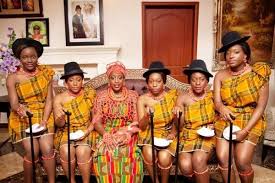The Ijaw Civilization: Its Origin, and the Tradition of Returning the Dead Women for Burial.
The Ijaw public, quite possibly the biggest ethnic gathering in Nigeria, has a rich history and social legacy that traces back to old times. Living basically in the Niger Delta area, the Ijaw progress has advanced over hundreds of years, formed by their extraordinary geological climate, social construction, and customs. Among these traditions, one sticks out: the practice of returning departed Ijaw ladies to their country for internment, paying little heed to where they resided during their lifetimes. This training reflects well-established convictions in character, parentage, and profound congruity inside the Ijaw people group. (Alagoa, E. J. (2005). A History of the Niger Delta: An Historical Interpretation of Ijaw Oral Tradition. Ibadan University Press.)
Origin of the Ijaw Civilization.
The Ijaw public are accepted to have gotten comfortable in the Niger Delta locale millennia prior. They are generally a fishing and riverine local area, living along the streams of the delta. The starting points of the Ijaw civilization are intently attached to the regular habitat, as the Niger Delta’s huge organization of streams, mangroves, and marshes plays an essential impact in molding their lifestyle.

Oral practices follow the Ijaw lineage to the old clans that once possessed the southern edges of what is currently present day Nigeria. Over the long run, the Ijaw secured themselves as guides and dealers, trading products like fish, salt, and palm oil with adjoining clans and European merchants during the transoceanic exchange time. Their capability in water transport and exchange permitted the Ijaw to foster solid financial ties with the rest of the world, which fundamentally affected their way of life.
Today, the Ijaw populace is assessed at around 15 million, with their essential settlements spread across a few states in southern Nigeria, including Bayelsa, Waterways, Delta, and Ondo. The Ijaw speak different lingos of the Ijaw language, which has a place with the Niger-Congo family, and they have kept up with their particular practices, convictions, and social associations.(Barikor-Wiwa, G. B. (1991). The Socio-Political Structures of the Ijaw of the Niger Delta. Fourth Dimension Publishing.)
The Custom of Returning Dead Women for Burial.
One of the main social acts of the Ijaw is the custom of returning departed ladies to their country for burial. This training, well established in Ijaw cosmology and convictions about parentage, features the significance of family relationship, character, and the association between the living and the dead.

In Ijaw society, ancestry and family legacy are basic to one’s personality. Ladies who wed outside their homeland are still viewed as having a place with their unique families, even after marriage. Upon death, the custom directs that their bodies should be gotten back to their natal homes for burial. This tradition serves several purposes:
1. Ancestral Continuity: The Ijaw trust that when an individual passes on, their soul should get back to their genealogical home to rest with their progenitors. This conviction is attached to the possibility that the place that is known for their introduction to the world holds profound importance, and entombment outside the country would cut off their association with their predecessors, disturbing the otherworldly pattern of life and demise.
2. Preservation of Identity: For the Ijaw, character is intently attached to the place that is known for their introduction to the world. By restoring the departed to their country, the family guarantees that the singular’s personality is protected and that they stay associated with their genealogical roots. This training is an approach to reaffirming the significance of the more distant family and the aggregate personality of the Ijaw public.
3. Respect for Tradition and Family Bonds: Returning a lady’s body to her family for burial is an honorable gesture for the family’s position and the solid bonds that exist between the living and the dead. It is likewise a way for the family to keep up with their influence over the departed’s legacy, guaranteeing that their memory is regarded inside the local area.
4. Spiritual Protection: The Ijaw likewise accepts that the soul of a departed individual who is not as expected covered in their country might become restless and cause misfortune for the family. To stay away from profound disturbance, it is fundamental to guarantee that the departed is let go as per conventional traditions. (Ogbogbo, C. B. N. (2006). The Niger Delta and the Nigerian State: Issues of Development and Democracy. Nigerian Historical Society.)
The Ijaw human progress, with its profound roots in the Niger Delta, is a demonstration of the persevering through force of custom and social character. The act of returning departed ladies to their country for burial is not simply a custom; it is a significant articulation of the Ijaw nation’s association with their precursors, their property, and their legacy. This custom highlights the significance of ancestry, personality, and spiritual continuity in Ijaw society, guaranteeing that even in death, people stay associated with the land and local area from which they began.

